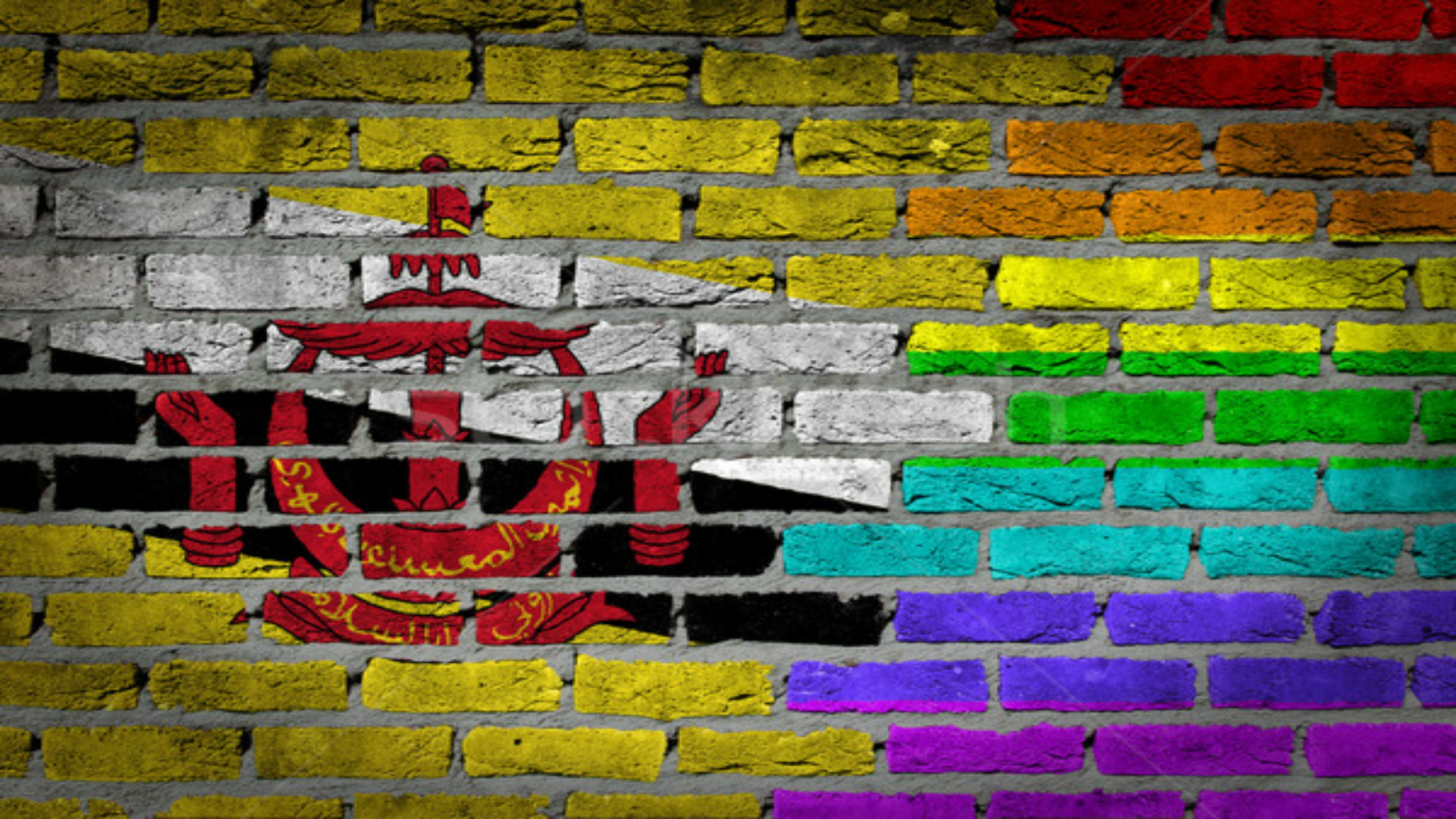
- Details
Breaking Walls
“I owe it to myself, to be true to myself, I owe it to those who cannot speak out, and I owe it to those who will come after me to make the first steps.”
In the nation I was brought up in for most of my life, silence has become the golden rule. We do as we’re told without question, and we are provided for. And for a time that was all that mattered.
Perhaps it was a different time then, or perhaps I was just not as in tune with the social issues of my world, but from the service of my memory I recall a happier people in a happier place. It was in the late 90s after the gay movement was starting to come into common acceptance. The world was sharply divided, the heat still dissipating between those in support and those against alternative sexualities, but despite this there was a global embrace as the world shifted into open acceptance.
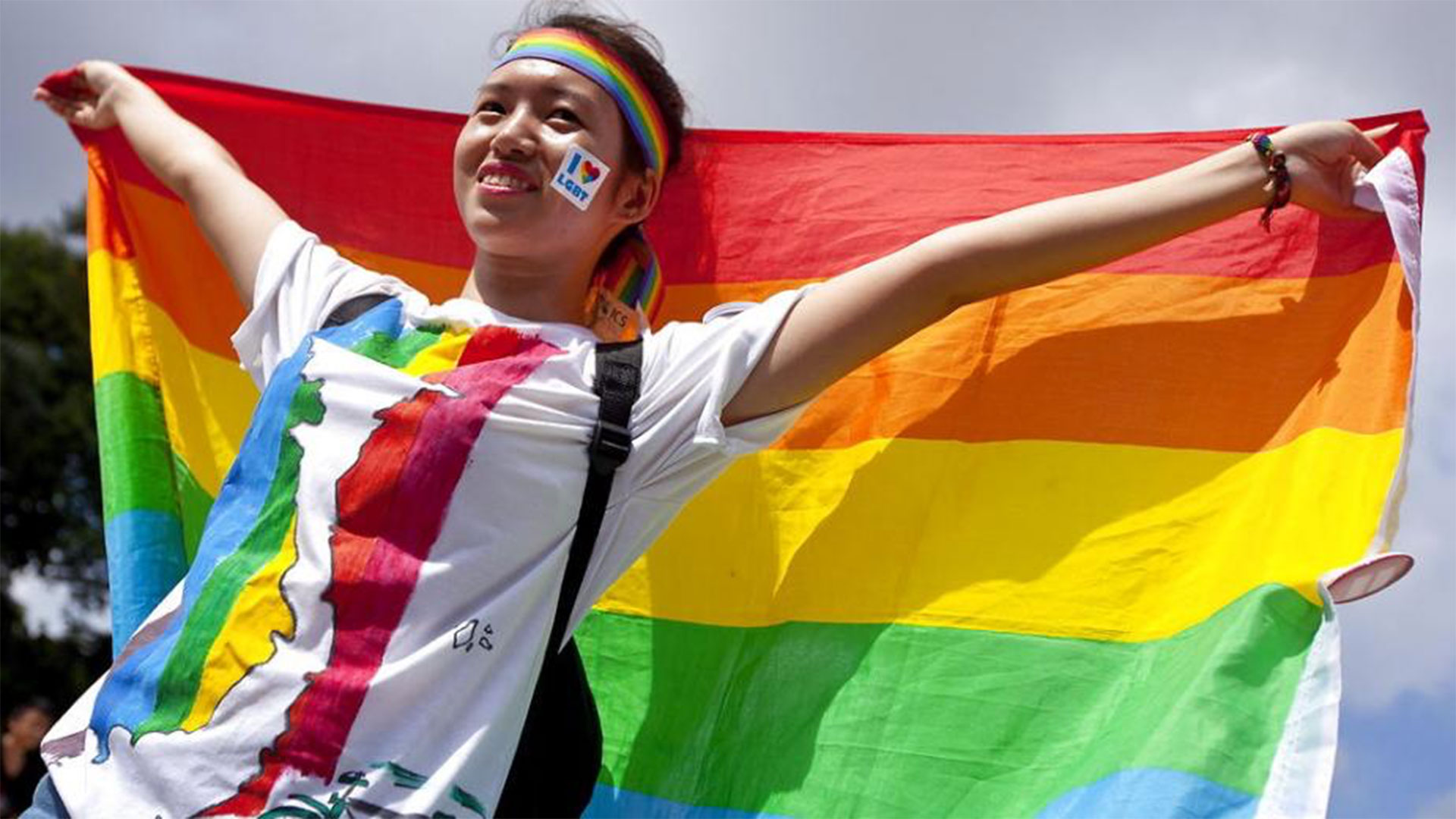
- Details
Making Universities a Safe Space for LGBTIQs
Academic communities in South East Asia have made remarkable progress in terms of LGBTIQ-friendly discourse in recent years, but most have been contained within the younger student bodies and their support groups. Despite efforts of advocacy groups to increase awareness amongst mainstream communities and institutions, the level of support from these sectors remain lukewarm at best.
Just this January, the Indonesian Minister of Higher Education Muhammad Nasir have publicly commented on LGBTIQ communities in universities, saying that because of “standards of values and morals to uphold”, such groups should not be allowed to exist in the academic setting.
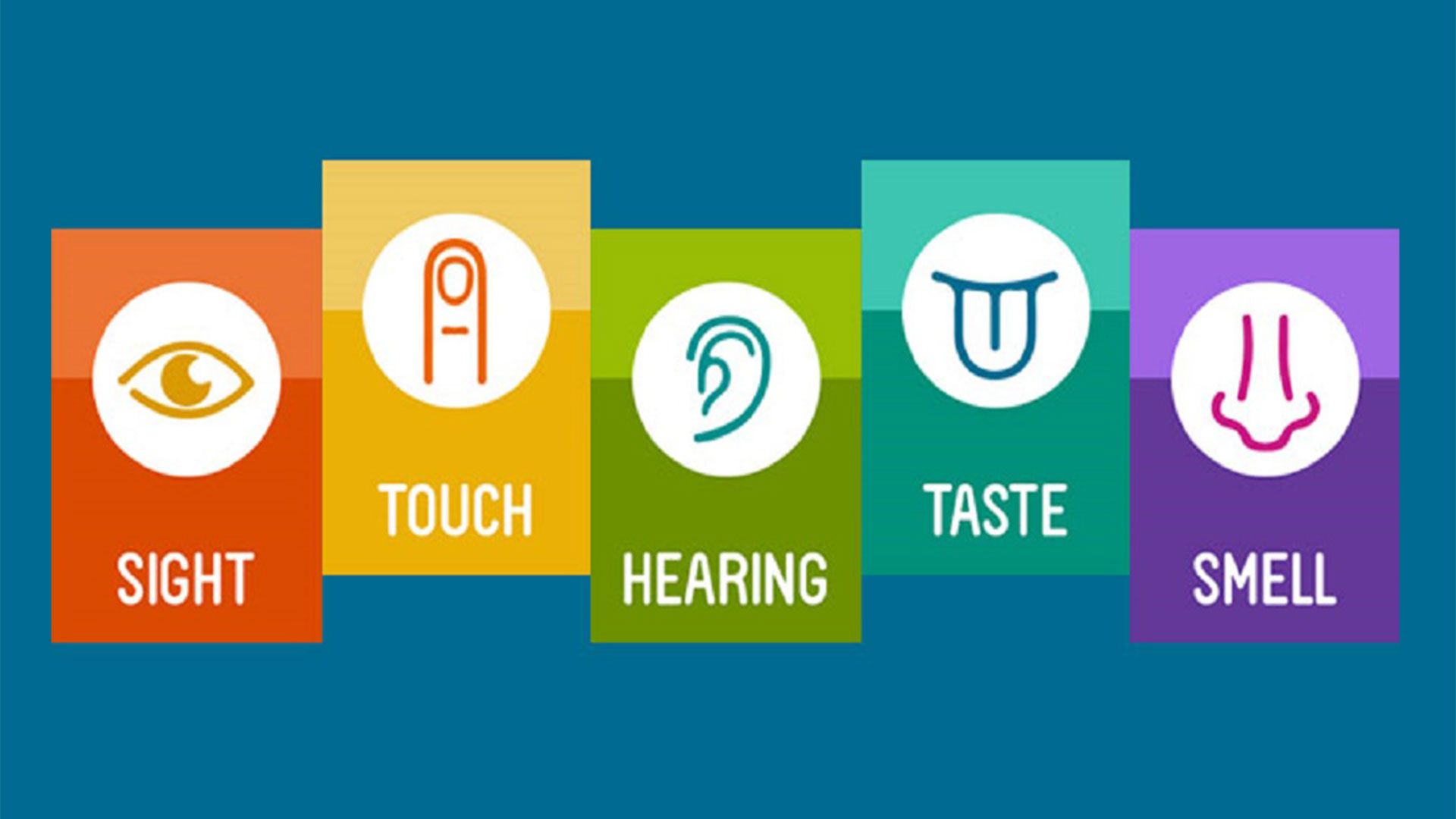
- Details
Learn about the senses
Our senses allow us to learn, to protect ourselves, to enjoy our world. Can you imagine what it might be like to live your life without any of your senses? The human being’s five senses usually work together to give us a clear picture of the things around us. If one sense is not working due to an accident or illness, the other senses will take over or become stronger to make up for what’s lacking. The five senses are: taste, sight, touch, smell, and hearing.
We humans have a general understanding of our senses as long as we can't live without them, but it is more important to see how we can live and utilize them towards achieving our goals. The fate of every human’s life depends on the senses. Whichever way we choose to use our senses, we still encounter situations that challenge our morality and integrity as humans who are committed to protecting the welfare of society. In times like this, how do we use our senses to properly fight for and maintain systematic peace?
If you look at the facts, many organizations and institutions around the world are already advocating for overall peace and security. However, the path towards a worldwide guarantee of human welfare is still a long one, and it’s up to us as individuals and small communities to contribute to the effort. Even as individual people, we can help by finding strategies on how best to use our own capacities, including our five senses, to advocate for peace. We can help reduce violence, discrimination, and stigma with a conscious effort to continually empathize with other people, and studying the contexts of various issues around the world. You’ll find out soon enough that because human beings are largely different, we experience many things differently based on race, gender, class status, age, physical abilities, and many more. With all these differences in place, how do we as responsible humans come toward a mutual respect for human rights and welfare?
Here are a few good ways to use our individual senses to advocate for Human Rights, regardless of culture, race, class, age, physical ability, or gender:
- Be accepting and cognizant of Human Nature and its various complexities
- Respect your society’s rule of law, and learn to understand it
- Keep in touch with minority or marginalized groups, to get know their concerns.
- Think before you do, and listen before you act.
The rights are based on the human being’s five individual senses, so I encourage all of you to use yours to learn more about the root cause of issues in our society. You don’t necessarily have to fight against institutions or relevant sectors that cause these issues, but thinking on proper solutions and providing positive, action-oriented feedback would be a great step towards promoting a Human Rights-based society.
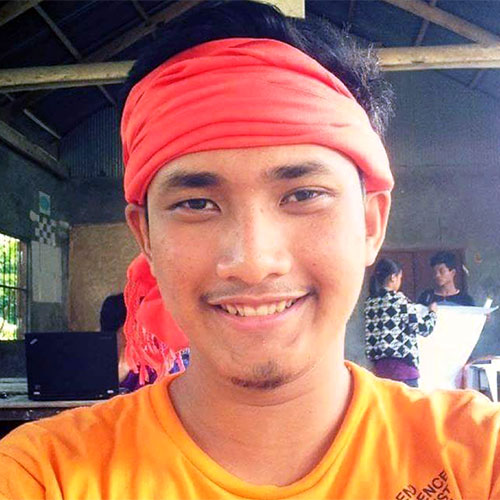
Phanith Phao
Phanith Phao
Phanith Phao is a third year university student who is actively involved in the work of CamASEAN Youth’s Future. He is involved in human rights and democracy activism in Cambodia and in ASEAN. He found inspiration to work on ending violence against persons from minority groups.
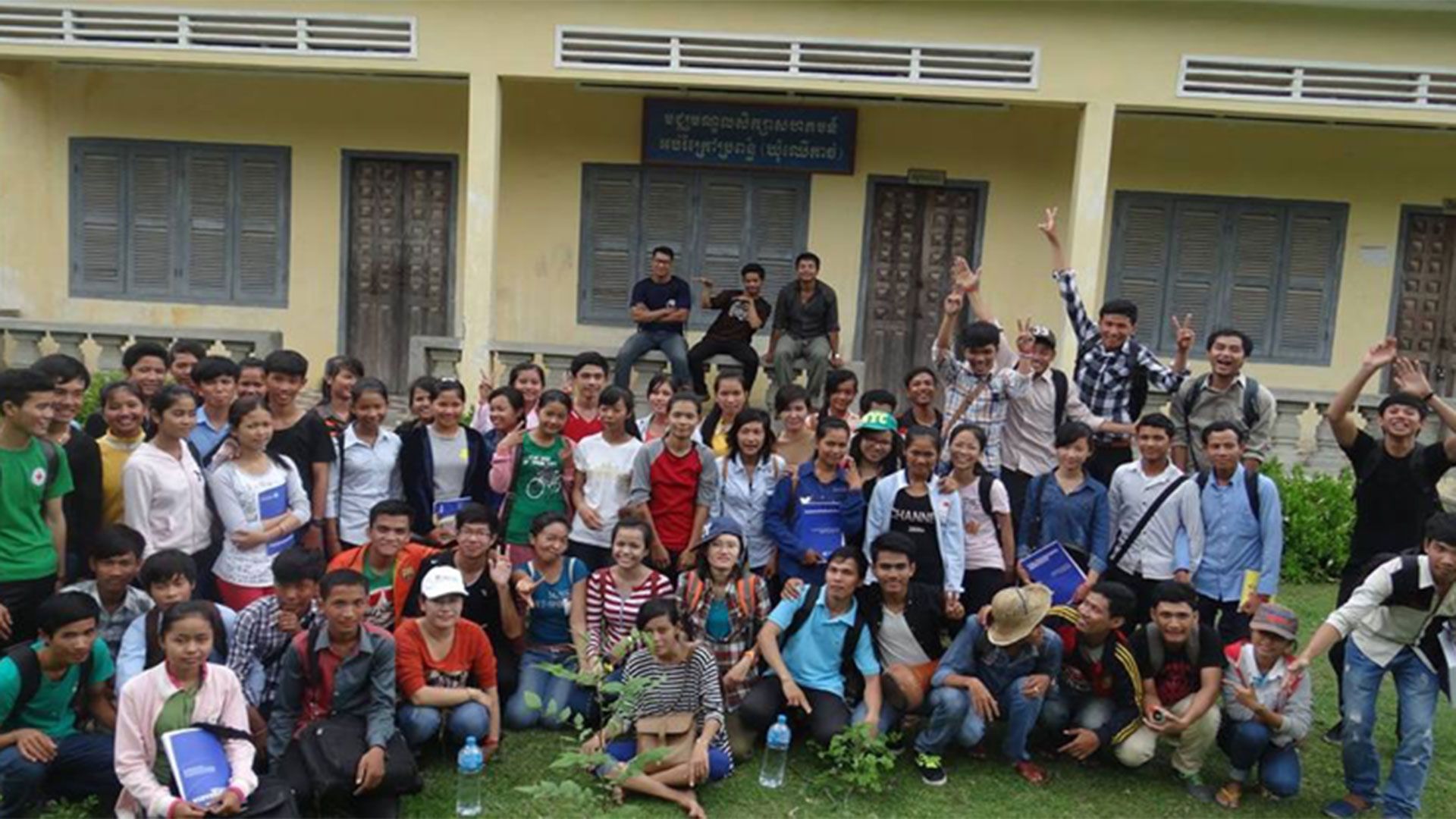
- Details
Challenges Faced by Youth Advocates for LGBTIQ Rights
Cambodia is one of the developing countries in ASEAN where there is a strong movement advocating for LGBTIQ rights. One feature of the movement is the presence and participation of young activists. In this essay, I would like to share some challenges faced by young activists who are supporting LGBTIQ rights.
Based on LGBTI young people stories, they worry about professionals and adults disclosing information about their sexual orientation or gender identity to other professionals, their peers or parents/carers. They are also concerned that professionals will take actions which they have not agreed to in response to incidents of bullying, coming out or requests for advice.
Another challenge faced is that Cambodian people still lack knowledge on human Rights, specifically on LGBTIQ rights. Getting allies to work on LGBTIQ rights require persistent education and awareness raising. Activists should remind government that they have the obligation to allow and encourage activist for sharing their concerns and to be proactive in creating a space for all sectors to be involved in social change.
There are organizations like CamASEAN having a mission of combating discrimination against minority diversity people include lesbian, gay, bisexual, transgender, intersex and queer (LGBTIQ), young girls live with HIV/AIDs, sex workers, drug user, people with disability, widowed/single parent, elderly people, indigenous and other ethnic people in Cambodia and ASEAN through strengthening capacity of as many activists as possible. Working closely with these organizations will help strengthen young people’s capacity as activists.
It is my dream that all young people be closely informed about LGBTIQ issues and be open-minded in accepting our diversity as human beings.

Phanith Phao
Phanith Phao
Phanith Phao is a third year university student who is actively involved in the work of CamASEAN Youth’s Future. He is involved in human rights and democracy activism in Cambodia and in ASEAN. He found inspiration to work on ending violence against persons from minority groups.
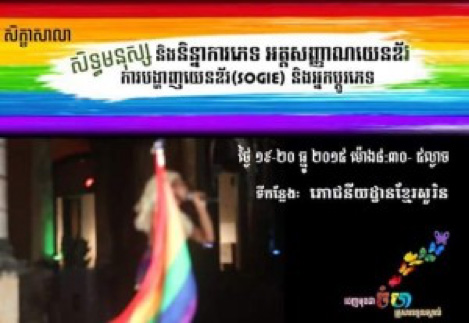
- Details
Human Rights Learning for Cambodian LGBTI Activists
In December 2015, the project Cambodian Building Yourself (CBY) of CamASEAN Youth’s Future will be organized. The event will focus on educational and human rights training for several LGBTI activists in Cambodia. The training will help them share knowledge and skills back to their community. The objective of the is to help them understand the Universal Declaration of Human Rights (UDHR) and how this can be used to support the advocacy of the LGBTI movement.
During workshop Mr. Srun Srorn, the founder and key resource of CamASEAN Youth’s Future discussed the speeches of King Norodom Sihanouk where he suggested have LGBTI marriage in Cambodia and Prime Minister Hun Sen where he urged to stop violence against LGBTI in Cambodia.
Mr. Long Malen, also from CamASEAN Youth’s Future said that the LGBTI movement will increase day by day. He shared that workshops like this will encourage more activism at the levels of commune and organizations.
CamASEAN hopes to expand the knowledge and skills to more Cambodian activists. At the regional level, they expect to have learning exchanges with activists from other ASEAN countries, especially Myanmar.

Phanith Phao
Phanith Phao
Phanith Phao is a third year university student who is actively involved in the work of CamASEAN Youth’s Future. He is involved in human rights and democracy activism in Cambodia and in ASEAN. He found inspiration to work on ending violence against persons from minority groups.



